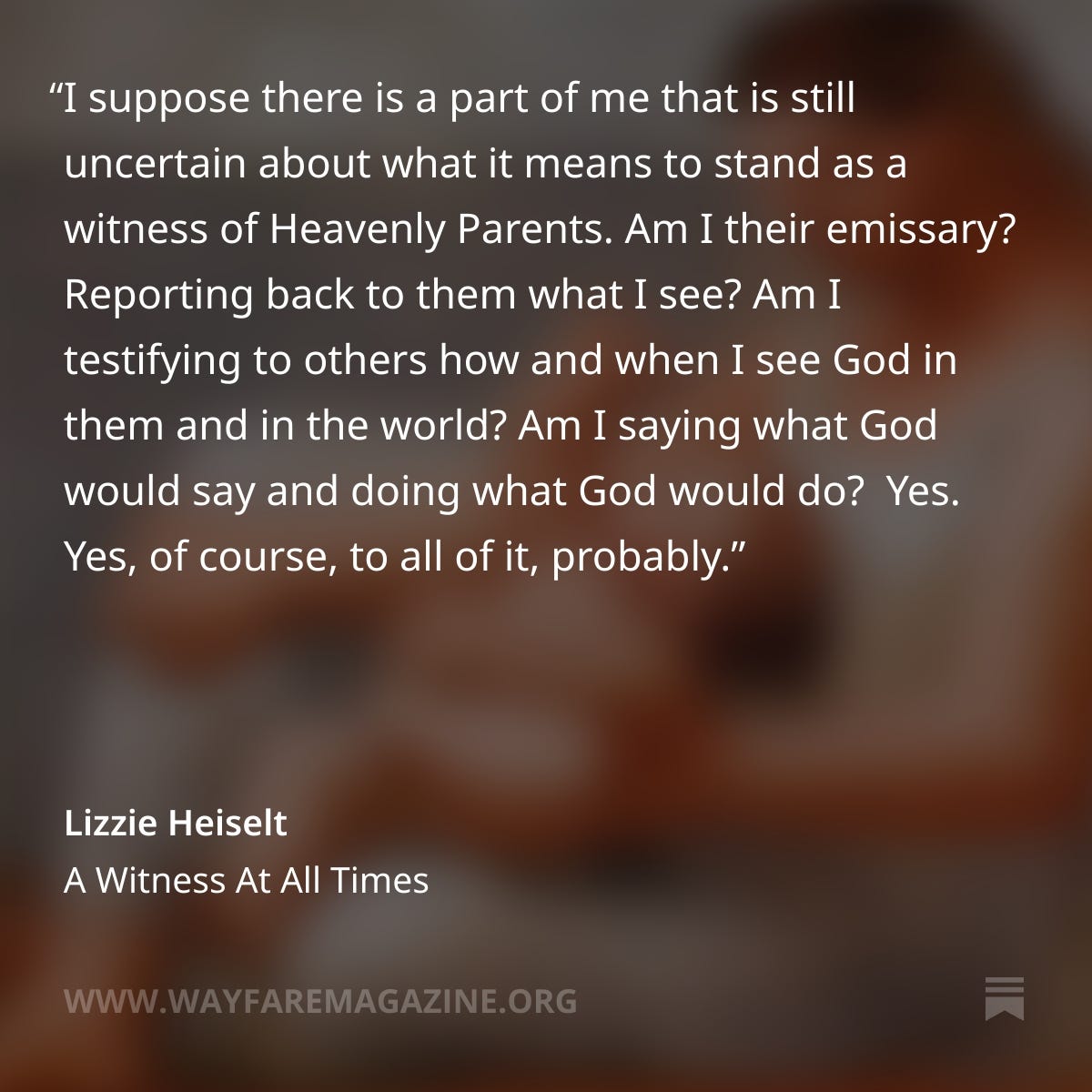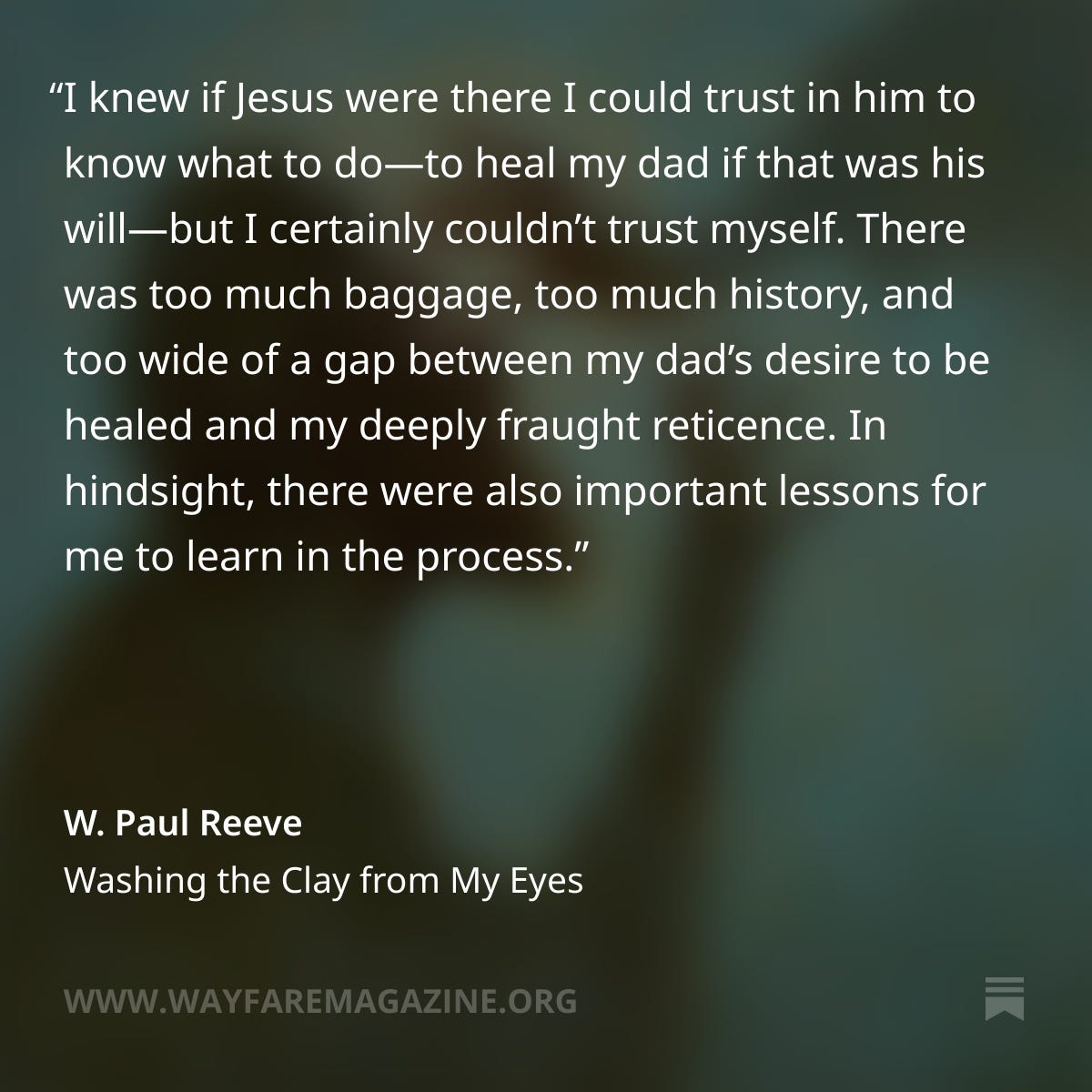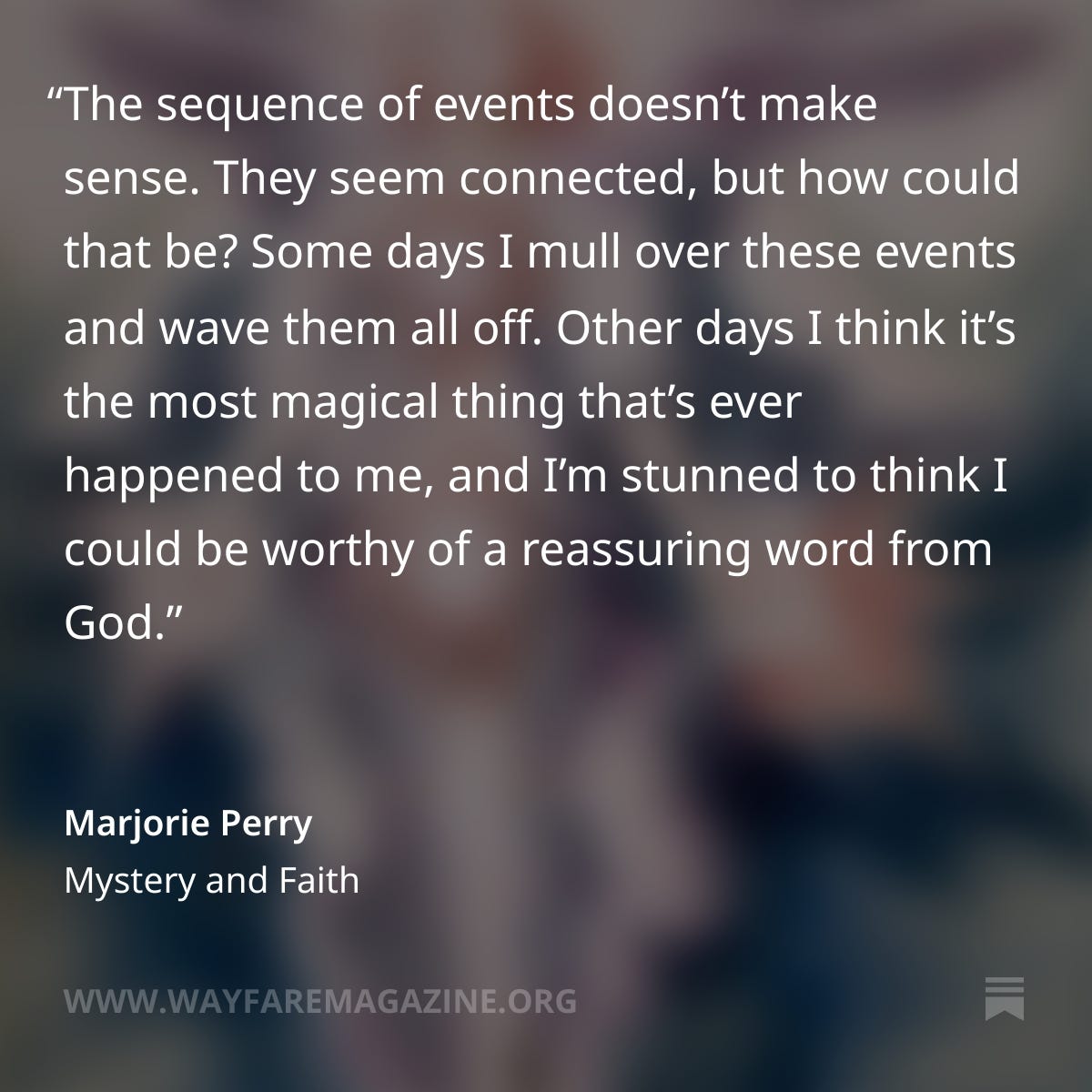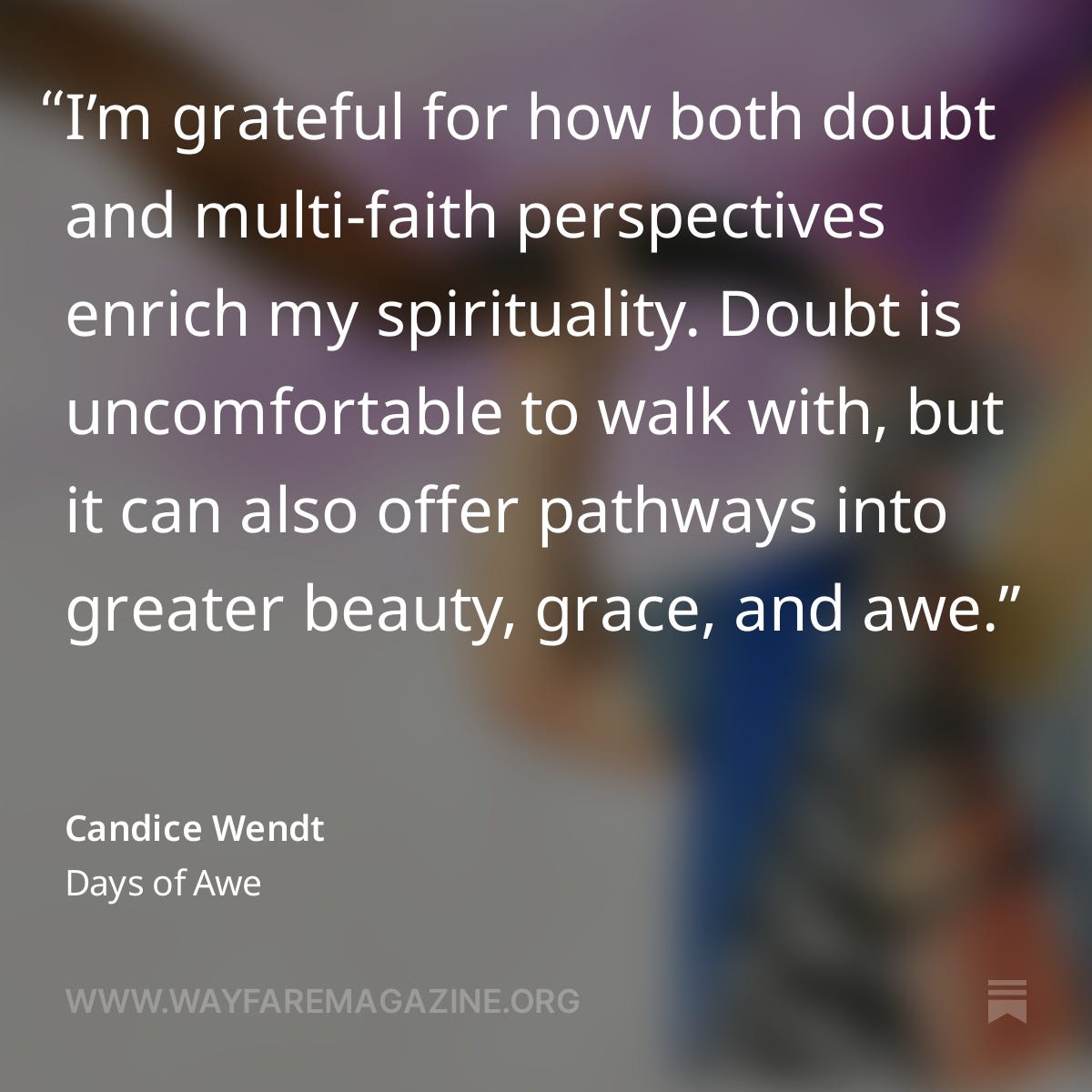What does it mean to be a witness of Christ?
Faith Matters resources to accompany your Come Follow Me study: April 7-13
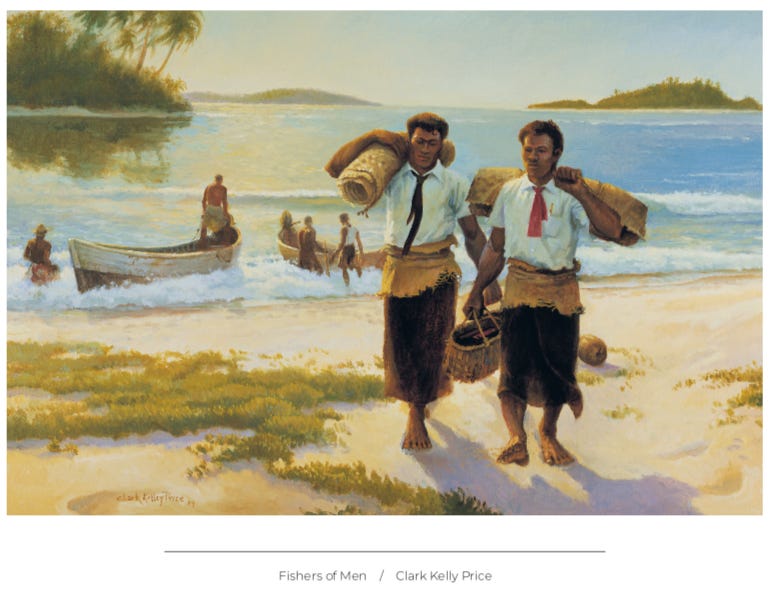
I am called to be a witness of Jesus Christ. I can share the gospel of Jesus Christ.
In 2022, we spoke with Jeff Strong about the experience of missionaries in today’s mission field, including the unique challenges and opportunities they face. This conversation was based largely on a document Jeff wrote, called “What One Mission President Would Tell His Own Grandchildren About Serving a Mission.”
You can also hear about Jeff’s experience as a mission president of the Bentonville, Arkansas Mission where he and his wife led a phenomenally successful pilot program with their missionaries. For us, the story of the Bentonville, Arkansas mission has totally revolutionized the way we imagine missionary work.
Learn from Patrick Mason in Restoration:
Our encounter with the larger world is forcing us to ask new, and challenging questions about our place in it. What does it mean that only 1/10th of one percent of the world’s population are members of “the only true and living church”? That means at least 99% of people around the world know little or nothing about Joseph Smith, let alone Russell M. Nelson. If the Church of Jesus Christ of Latter-day Saints is true, and if God wants all his children to be members of it, shouldn’t it be…bigger?
And what about all those really good people—our neighbors, coworkers, even family members—who are members of other religions, or no religion at all? Can divine love, favor, and revelation really be concentrated on just 0.1% of God’s children?
My head and heart both say no. The scriptures and prophets of the Church of Jesus Christ of Latter-day Saints do too.
—Patrick Mason, “True and Living Church: Bearer and Receiver of Gifts” (an excerpt from Restoration)
Missionary efforts go on apace—we continue inviting the world’s citizens to gather into worldwide stakes by joining themselves formally to the Church. But what about the vast majority of the world’s population—those who either never hear the call to gather or who hear but, for any of a thousand reasons, never heed it? What is our responsibility toward the billions of our brothers and sisters who do not heed our message? I believe that we are beginning to understand that we have a responsibility to better the world for all of its citizens, whether they choose to be gathered or not.
—Richard Bushman, “How to Save the World”
Go even deeper with The Big Questions project: In what way is our church “the true church?”
The Lord can help me with my family relationships.
The Lord prepares me for the work He wants me to do.
If I build my life on the Savior’s gospel, I will not fall. I can build my life on the gospel of Jesus Christ.
Joseph Smith provides an example of doubt honestly acknowledged, honestly engaged, and powerfully profitable. He tells us that even after a heavenly vision, even after being told by Jesus Christ that his sins were forgiven, he again fell into doubt about his spiritual standing before the Lord. He sought assurance and clarity, and the result was an angelic visitation, a divine commission, and the start of his prophetic career (which Joseph dated to Moroni, not the First Vision). Imagine the trajectory of the Restoration, if someone had told young Joseph: “Stop worrying and asking questions. Cease questioning your faith and spiritual witness you already received. Doubt is faithlessness.”
—“Can Stronger Faith Emerge From The Crucible Of Doubt?”
From The Big Questions Project: I’m going through a period of serious doubt. Does doubt ever lead to greater faith, or is this likely my new normal?
I should focus more on the things of God than the things of the earth.
How can we integrate our spirituality into our intellectual pursuits and vice versa? Listen to our conversation with Shima Baradaran Baughman, “Mercy on the Margins,” and check out Every Needful Thing: Essays on the Life of the Mind and the Heart, edited by Kate Holbrook and Melissa Inoyue. (You can also listen to our conversation with Kate and Melissa about the project.) As the book’s description puts it: “Instead of pushing us to choose between faith and reason, love and law, truth within the restored gospel and truth in the wider world of God’s children, these writers urge us to seek ‘anything virtuous, lovely, or of good report’ and learn to live in a world of complexity and abundance.”
From a transformative perspective, worldliness is any attempt to find security through finite means—safety, pleasure, the esteem of others, and the insatiable need to control our circumstances. The gospel invites us to leave this worldliness behind and find security in the only Reality that is worthy of our hearts. We are not sanctified by perfecting the false self but by waking up to an entirely new dimension of self, whose center of gravity is Christ.
—Thomas McConkie, At-One-Ment (read an excerpt here.)
The Kingdom of Heaven, Jesus said, is within us. It’s not just in a far-away celestial land where God will make everything right that is currently wrong. As co-creators with God and co-builders of Zion, we can harness grace to intervene in the stickiness now—to merge the disparate visions of a glorious family-centered heaven with each heaven-centered human of earth’s family who wants to be there.
—Hannah Packard Crowther, Gracing
Our relationship to the physical world itself has been shaped in surprising ways by Greco-Roman culture and philosophy. For example, the early Christian movement incorporated the idea of Platonic forms, which says there is a perfect world “out there” in contrast to the deficient (and “fallen”) world we live in. (Many centuries later, Joseph Smith revealed that the Fall of Adam was in fact necessary to make possible a fullness of joy. In the restored gospel’s telling, physicality is not a fall from anything. It is a glorious ascent. The body is not fallen—it is the god and the goddess in embryo.)
—Thomas McConkie, At-One-Ment
A journaling invitation from At-One-Ment, by Thomas McConkie: “What if this very body, this very world were already heaven? Rather than relating to this life as a test to get somewhere better, what if you treated this very moment as the better place you were hoping to get to? You’ve already arrived. This is it. How would you act differently if this were the case? In what way do you start to perceive things differently when you take this to be true?”
I’ve stopped focusing on the Jesus who will come into my future and have started focusing on His coming into my present. The lines between a religious life and an everyday one blur. My search for a life in Christ requires a new kind of seeking and an entirely different orientation to my works. Works stop being a way to carry me into future grace and start being a way to orient me to present grace.
…I’m inspired by those who have shown me how this is possible. The Anglican priest Tish Harrison Warren describes something similar in her book Liturgy of the Ordinary. Liturgy is not a word Latter-day Saints use frequently, but it refers to religious rituals and habits such as the sacrament or daily prayers. Warren explores the idea that the common daily liturgies of making our bed, brushing our teeth, or checking our email can be opportunities for practicing holiness. They can be practiced as liturgies to experience God in even the most mundane tasks.
In addition to the many chore-like daily routines, a more intentional motherhood has often involved reaching for what lights my children up. With my Minecraft-loving son, that might mean some stumbling around in the game. With my math-loving son, that could mean learning about the Fibonacci sequence and how its mathematical patterns show up in nautilus shells and galaxies. Too often I’m cluelessly going through motherhood, not paying attention. But my experience changes when I reach for connection with my children through the things they love. I bring God into the dance.
…Embracing these moments leads me to God in the here and now. In all the works I do, from math, to raising children, to taking the sacrament, to belting Queen, I can live more fully in relationship with Christ. I can stop living a severed life. I can learn that life in Christ has been the natural state of affairs all along.
We have a divine and willing partner.
And an invitation to join the dance.
—Hannah Packard Crowther, Gracing




